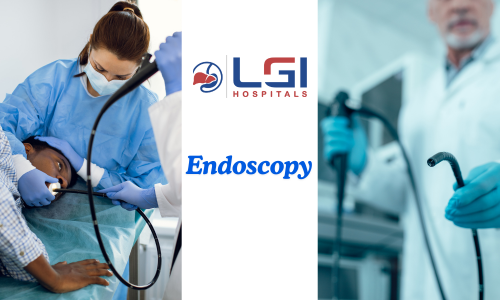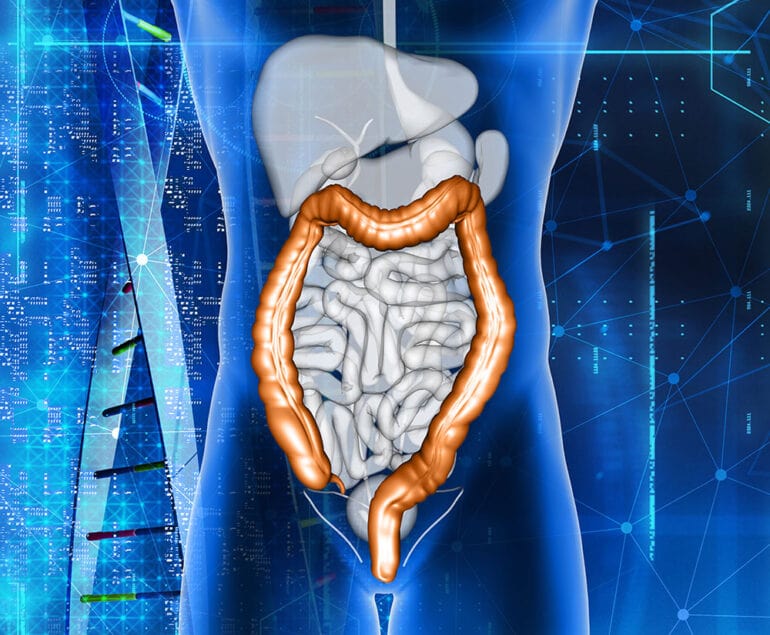SERVICES OFFERED
ENDOSCOPY
- Diagnostic & Therapeutic Upper GI Endoscopy
- Diagnostic & Therapeutic Colonoscopy
- Capsule Endoscopy
- ERCP & Cholangio-pancreatoscopy
- Endoscopic Ultrasound [EUS]
GI MOTILITY LAB
- 24 Hrs Esophageal pH-Impedance study
- Esophageal & Anorectal Manometry
BREATH TESTS
- Hydrogen Breath Test for small intestinal bacterial overgrowth
- Urea Breath Test for H. pylori infection
SURGERY
- Esophageal & Gastric Surgery
- Hepatectomy & Liver Surgery
- Pancreato – Billiary Surgery
- Colorectal Surgery
- Hernia Surgery – Laparoscopic & Open
- Minimally Invasive & Laparoscopia Surgery
- Gl Oncology Surgery
- Surgery for Piles, Fistula & Fissure
RADIOLOGY
- Digital X-Ray
- Ultrasound with Colour Doppler
- Liver Elastography [Fibroscan] for liver fibrosis and steatosis.
PATHOLOGY
CRITICAL CARE TAIL
- State of Art Intensive Care Unit & Expert Team for management of GI and hepato-pancreato-biliary diseases
ADVANCED SERVICES OFFERED
ERCP & CHOLANGIO-PANCREATOSCOPY
- Complex Pancreato-biliary Procedures
[Multiple biliary stent placement for hilar strictures;
mechanical lithotripsy for CBO stones] - Laser Lithotripsy Treatment for CBD / pancreatic stones
- CBD Stricture evaluation
- Ampullectomy
THIRD SPACE ENDOSCOPY
- Endoscopic Mucosal Resection [EMR] & Endoscopic Submucosal Dissection [ESD] for early gastrointestinal cancers
- Peroral Endoscopic Myotomy [POEM] for Zenker’s Diverticulum,
Achalasia Cardia, Gastroparesis, Hirschsprung’s disease - Submucuosal Tunneling & Endoscopic Resection [STER]
& Endoscopic Full-Thickness Resecton (EFTR] for subepithlial tumors
ANTIREFLUX TREATMENT [FOR GERD]
- Antireflux Mucosal Ablation [ARMA]
- Endoscopic Funcoplication
ENDOBARIATRICS [FOR WEIGHT LOSS]
- Gastric Balloon placement
- Endoscopic Sleeve Gastroplasty
ENDOSCOPIC ULTRASOUND [EUS]
- EUS & EUS – guided FNAC / Biopsy for diagnosis
- EUS – guided Pancreatic Cysto-gastrostomy / Choledocho-jejunostomy / Hepatico-gastrostomy
- EUS – guided Gastric Variceal Glue & Coil treatment
Understanding Endoscopy

- Diagnostic Precision: Endoscopy allows for direct visualization of internal organs. This enables accurate diagnosis of various conditions such as ulcers, inflammation, tumors, and other abnormalities.
- Minimally Invasive: Unlike traditional surgical procedures, endoscopy is minimally invasive. It requires only small incisions or natural body openings, which reduces the risk of complications, pain, and recovery time.
- Localized Treatment: Endoscopic procedures often allow for targeted treatments such as polyp removal, tissue biopsy, or stent placement directly at the site of the issue. This minimizes collateral damage to surrounding tissues.
- Shorter Recovery Time: Patients undergoing endoscopy typically experience shorter recovery times compared to traditional surgery. This allows them to resume normal activities sooner.
- Reduced Risk of Infection: Because endoscopy involves smaller incisions or no incisions at all, the risk of infection is lower compared to open surgery.
- Outpatient Procedure: Many endoscopic procedures can be performed on an outpatient basis. It means patients can return home the same day, avoiding the need for hospitalization at LGI.
- Improved Patient Comfort: Endoscopic procedures at LGI Hospital are generally more comfortable for patients compared to traditional surgery, as they involve less pain and reduce trauma to the body.
- Visualization for Treatment Planning: Endoscopy at LGI Hospital provides real-time visualization. This allowing our doctors to assess the condition of the organs and plan treatment strategies accordingly.
- Early Detection of Conditions: Endoscopic screenings can detect conditions at an early stage. It leads to timely intervention and improved outcomes for conditions such as gastrointestinal cancers.
Exploring Types of Endoscopy
Upper Endoscopy (Esophagogastroduodenoscopy, or EGD)
This procedure involves inserting an endoscope through the mouth to examine the esophagus, stomach, and duodenum. It’s invaluable for detecting conditions such as ulcers, inflammation, and tumors in the upper digestive tract.
Colonoscopy
Through the insertion of an endoscope into the rectum, doctors at LGI Hospital can visualize the colon and rectum, aiding in the detection of polyps, colorectal cancer, and inflammatory bowel diseases.
Endoscopic Retrograde Cholangiopancreatography (ERCP)
ERCP is a specialized procedure used to diagnose and treat conditions affecting the bile ducts, pancreas, and gallbladder. It’s particularly beneficial for identifying and removing gallstones, as well as addressing issues with bile ducts.
Endoscopic Ultrasound (EUS)
Combining endoscopy with ultrasound imaging, EUS at LGI Hospital provides detailed views of the digestive tract and adjacent structures. This procedure assists in the diagnosis and staging of gastrointestinal cancers, as well as guiding therapeutic interventions.

Endoscopy Side Effects
Common side effects may include:
- Sore Throat or Hoarseness: If the endoscope is inserted through the mouth, you may experience a sore throat or temporary hoarseness for a few days following the procedure. This discomfort typically resolves on its own with time.
- Abdominal Discomfort: Some patients may experience mild abdominal discomfort, bloating, or cramping after the procedure, particularly if the endoscope was inserted into the intestines. These symptoms are usually temporary and should improve within a short period.
- Reaction to Sedation: Endoscopic procedures often involve sedation to ensure patient comfort. While sedation is generally safe, some individuals may experience reactions such as nausea, dizziness, or allergic reactions to the medications used. It's essential to inform your doctor at LGI Hospital of any known allergies or sensitivities before the procedure.
- Bleeding: Although rare, bleeding can occur during or after an endoscopic examination, particularly if tissue samples are taken or polyps are removed. Most cases of bleeding are minor and resolve without intervention. However, it's crucial to notify your doctor at LGI Hospital if you experience excessive bleeding or notice blood in your stool following the procedure.
- Perforation: In rare cases, the endoscope may cause a perforation or tear in the gastrointestinal tract. Symptoms of perforation include severe abdominal pain, fever, and signs of infection. Perforation requires immediate medical attention and may necessitate surgical intervention to repair the damage.
- Pancreatitis: Endoscopic retrograde cholangiopancreatography (ERCP), a specialized endoscopic procedure, carries a small risk of pancreatitis—a condition characterized by inflammation of the pancreas. Symptoms of pancreatitis include severe abdominal pain, nausea, vomiting, and fever. Prompt medical evaluation is necessary if pancreatitis occurs.
It’s important to discuss any concerns or questions about potential side effects with your healthcare provider before undergoing an endoscopic procedure. Your medical team will take steps to minimize risks and ensure your safety throughout the examination process. If you experience any unexpected or concerning symptoms following an endoscopy, don’t hesitate to seek medical attention promptly. LGI Hospital will always be open to any concern.

Why Choose LGI Hospital for Endoscopy?
Expertise
Benefit from the expertise of our skilled team of gastroenterologists and endoscopy specialists, who are dedicated to delivering personalized care and optimal outcomes.
Cutting-Edge Technology
LGI Hospital is equipped with advanced endoscopic equipment and imaging technology. This ensures precise visualization and accurate diagnosis of gastrointestinal conditions.
Comprehensive Care
From initial consultation to post-procedure follow-up, doctors at LGI Hospital provide comprehensive support and guidance throughout your endoscopy journey.
Preparing for Your Procedure
Prior to your endoscopy at LGI Hospital, you’ll receive detailed instructions on preparation, which may include dietary restrictions and bowel cleansing to optimize visualization of the digestive tract.
Recovery and Follow-Up
Following your endoscopic procedure, our team will monitor your recovery in our dedicated post-procedure area. You’ll receive post-procedure care instructions and any necessary follow-up appointments to ensure your well-being.

- Diagnostic Precision: Endoscopy allows for direct visualization of internal organs. This enables accurate diagnosis of various conditions such as ulcers, inflammation, tumors, and other abnormalities.
- List Item #2
- List Item #3
- Diagnostic & Therapeutic Upper GI Endoscopy
- Diagnostic & Therapeutic Colonoscopy
- Capsule Endoscopy
- ERCP & Cholangio-pancreatoscopy
- Endoscopic Ultrasound [EUS]

